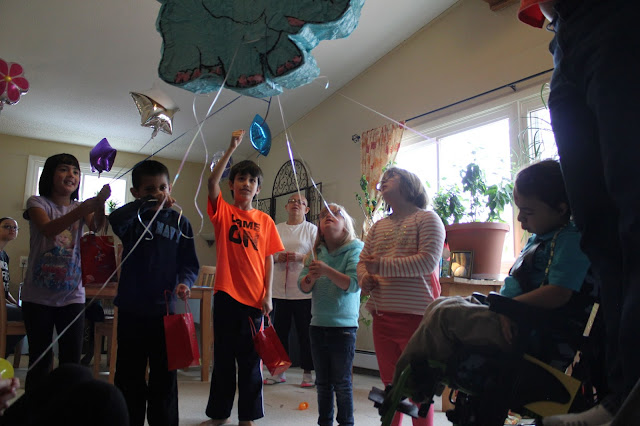The Good, the Bad, and The Ugly of Being Part of an Online Support Group
I honestly did not feel the need to seek a support group, let alone a support group on Facebook, when I received an invitation to join first one group and then another. Soon I was hooked. I can easily now spend an hour reading and replying to posts about children with needs similar to my son’s.
For the first time, I was looking at pictures of families like mine. I saw posts about challenging moments, illness, and death. I saw honesty and vulnerability, pain and sadness, and I liked that because to me that is reality--- I see that where I work very frequently. I have cried over children lost and I’ve been filled with fear for what might come our way. I have also rejoiced for the happy moments and the recoveries. There is a time to cry and a time to laugh.
Being part of an online support group showed me as well what’s going better and worse for others. For someone like me, who often falls prey to social comparison, this is a double-edged sword. On one hand, I’ve seen how good we’ve had it---no tracheostomy, no frequent hospitalizations, a healthy immune system, and seizures under good control. On the other hand, I have felt a mixture of disillusion and guilt when seeing children doing much better developmentally than my son. I wish, for instance, that my son would reach for my face like many others do.
Disillusion disappears the moment I look at Caleb. Truth is, I not only love him, but adore him the way he is, and he does not need to be able to do anything more for disillusion to be replaced by gratitude and contentment. Guilt, on the contrary, lingers. It tells me there is always something more that I should do, or that I did not do. It is my fault. I haven’t been diligent enough.
In our group, families whose children are doing well share their progress and victories to encourage and push back the negativity and prejudice permeating the medical community in the world of trisomy 13 and 18, particularly full trisomy. The goal is to send a message loud and clear which is in sharp contrast with the doom and gloom often forecasted by doctors because of the severity of the health problems and the developmental delays which accompany both diagnoses.
This message is absolutely necessary as many parents have been told there is either nothing to do or nothing worth doing to save their children when, in fact, often there is. Many, therefore, have been encouraged, even pressured, to terminate their pregnancies. Many have been assured their children won’t have “quality of life” when, actually, a parent’s definition of “quality” often times differs greatly from that of a doctor's. The unspoken or straightforward question seems to be, “Is a life like that of our children worth living?” and for those in the group the answer is a resounding yes!
If doctors could look at our pictures and our videos, but more than anything, if they could read our posts, they would see that we cherish our children’s lives no matter how short and how limited. They’d be surprised to see quite a few kids doing remarkably well developmentally, beyond many doctors’ imaginations---kids sitting, crawling, starting to walk, and saying a few words. Yes, reaching these milestones is a big deal for a trisomy 13 or 18 child!
To be fair and honest, I do believe that every now and then we get carried away in our attempt to offer hope and to counterbalance the doom and gloom message. We can swing to the other extreme. We can start to ignore the spectrum. We can start generalizing and painting all doctors with the same brush making it hard to expect anything good from them, making us suspicious of their motives. Unintentionally, the message seems to become “because our child can or did, so can yours,” as if it were a matter of sheer determination.
Our group is formed of people whose children are long-term survivors and of people whose kids died in utero, shortly after birth, or a long time ago. Many women turn to our group after a prenatal diagnosis, and I can say with all confidence that we become a lifeline for them. I know they would have been for me, had I found out prenatally that my son had full trisomy 13. Yet this is not without risk.
Parents starting on the road of bitter-sweet assume those in the group understand, and we do because many of us have been in their shoes. So they open up their lives and invite us into their prenatal journeys asking for advice and looking for hope, perhaps never fearing that we will question their decisions afterwards, until it happens, and people get hurt. Both the seeker and the giver of advice walk a fine line. We are always taking a chance when we expose our lives.
I used to think Facebook was not for me. People looked too happy and pretty, always smiling against beautiful backgrounds, having fun surrounded by friends, while I felt lonely, anxious, and exhausted. Being part of an online support group has allowed me to meet others, whose lives look more like mine. Even though the experience isn’t always safe, and we have our moments when opinions clash, I am grateful for the opportunity to grieve and celebrate with others; I am grateful for the opportunity to learn and to be challenged by the example of perseverance and determination of many parents who always expect more for their children. And believe it or not, it has eased my entrance into the world of ‘mainstream’ Facebook too.




Comments
Post a Comment